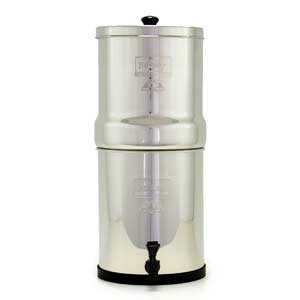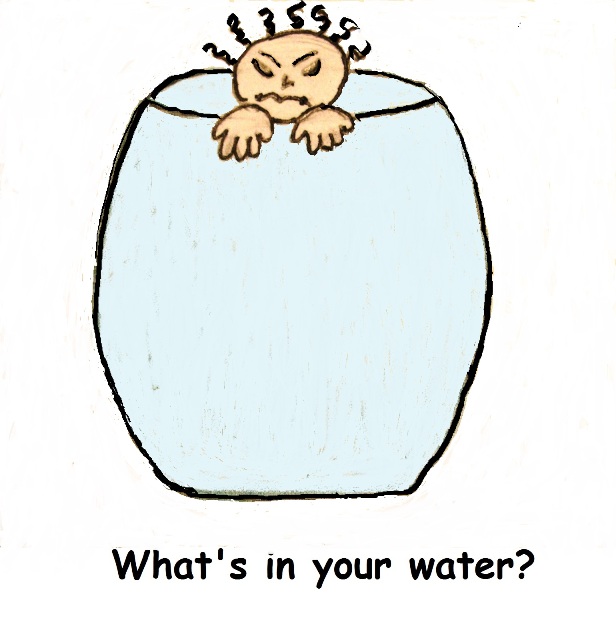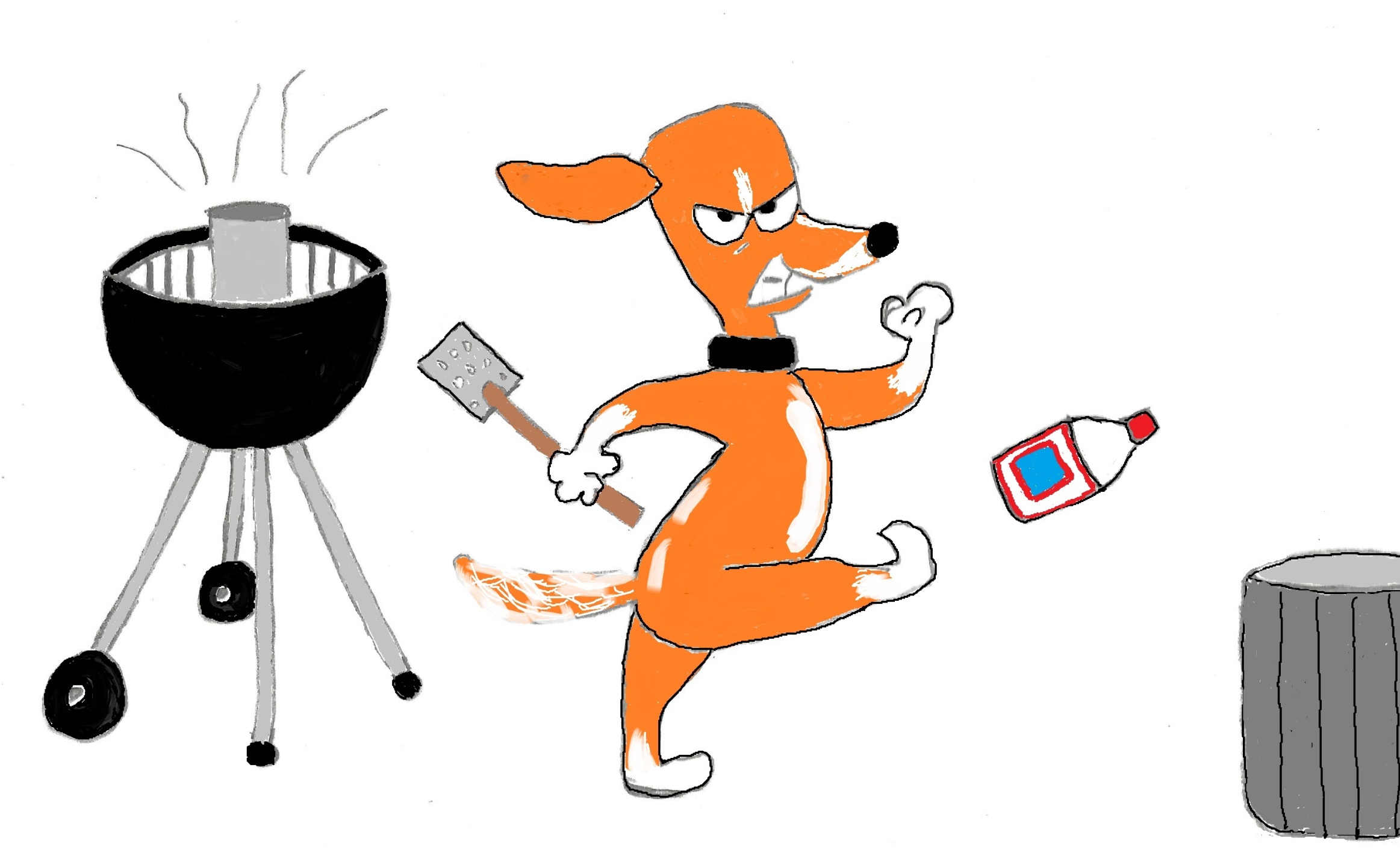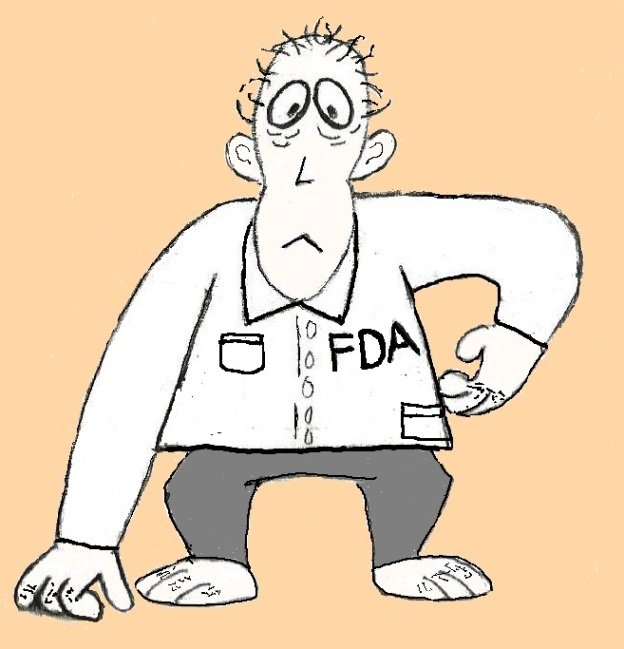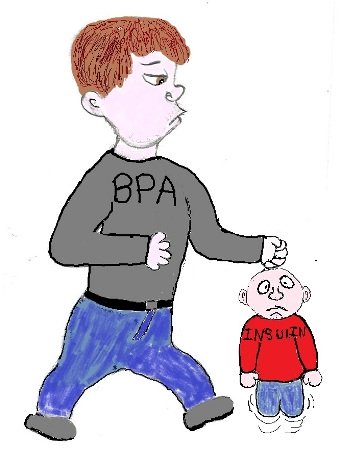- Home
- Non Toxic Food
- Avoiding Plastic
3 Things You Should Stop Buying at the Grocery Store
To stay healthy you probably put a lot of thought into the foods you eat. But have you thought about the containers those foods come in? Are you avoiding plastic containers? To reduce your exposure to BPA, antimony and phthalates stop buying these 3 things at the grocery store.
1. Canned Foods
Bisphenol A, or BPA is not just used to make plastics. It is also used to make epoxy coatings that line most of the 131 billion food and beverage cans made in the U.S. annually. We now know that BPA leaches out of these containers.
Surveys by the CDC have found BPA in the bodies of nearly every person over the age of 6. This nasty toxin causes a variety of health issues and food and food containers are a primary source of exposure.
Avoiding plastic chemicals by ditching the can is a solution you can adopt that requires a little commitment. Canned foods are so convenient. Really, who has time to soak beans overnight or make soup from scratch? But consider this - the FDA still allows BPA in food cans even though a study it conducted in 2011 of 78 popular canned foods found the chemical leached into food in 90 percent of the samples.
A great way to start ditching the can is to avoid the 2 biggest BPA offenders:
- Canned Soup - In 2011, researchers at the Harvard School of Public Health determined that volunteers who ate a single serving of canned soup a day for five days had ten times the amount of BPA in their bodies as when they ate fresh soup daily.
-
Canned Tomatoes – the
acidity in tomatoes causes high levels of BPA to leach from can liners.
Instead
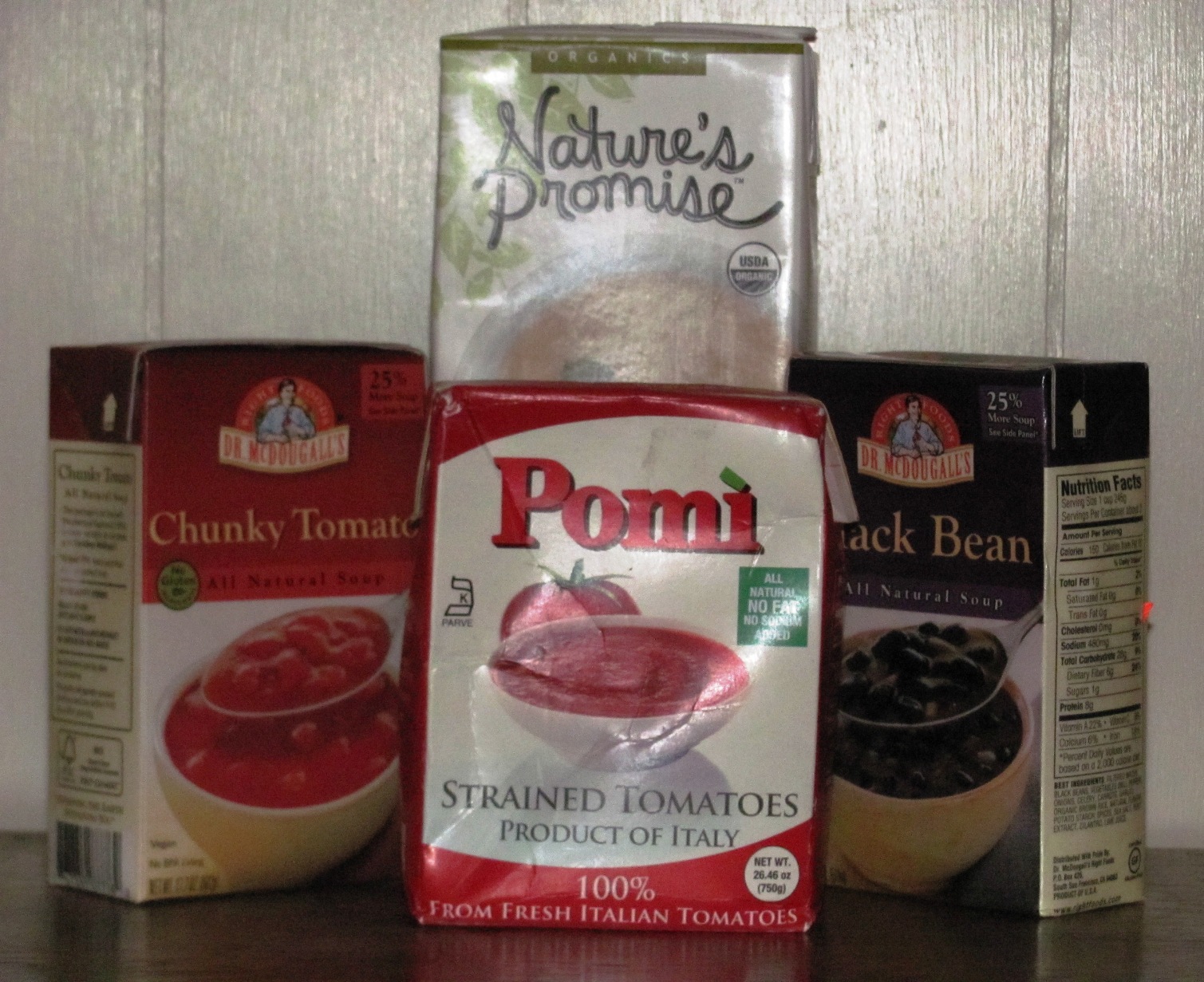
- Buy soups and tomatoes packed in glass jars
or waxed cardboard (Tetra-Paks). I really like Pomi Tomatoes in cardboard and Bionaturae’s
tomatoes in glass jars. There are also many soup options now available in
cardboard. (The photo shows items I pulled out of my pantry).
- Make soup at home. I like to make a big pot of soup and then freeze individual portions in canning jars.
- Chose frozen fruits and vegetables to continue to reduce your use of canned food. Yes, they come packaged in plastic, but for the entire length of their journey from food processing plant to grocery store they are kept frozen. So temperature is not a factor in leaching. Also, I found one study that tested the leaching of endocrine disrupters from frozen produce bags and did not find any.
However, you should never steam frozen veggies in the bags they come in. I always cook the veggies either in a pan on the stove or a Pyrex bowl covered with a plate in the microwave.
Note – Some food companies, such as Hunt’s, have agreed to phase out the use of BPA in their cans. The skeptic in me says – Will the replacement for BPA be any safer?
Solution for Canned Beans
- Buy bags of frozen beans.
- Buy bags of dried beans. To prepare, pour boiling water over beans to cover. Soak for an hour then cook. Drain then freeze in canning jars. Cheap, convenient and NO BPA.
2. Condiments, Salad Dressings and Nut Butters in Plastic
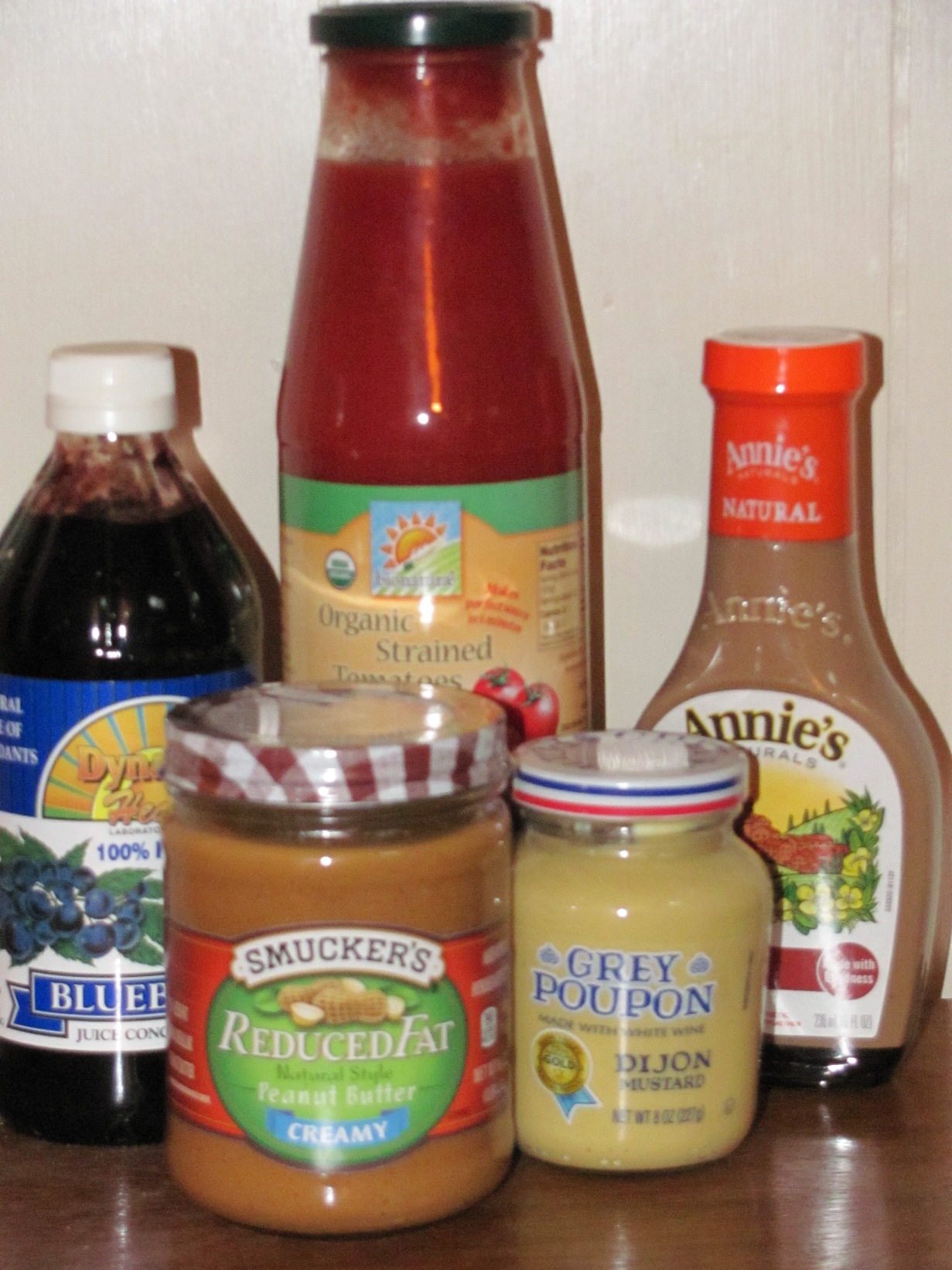
Polyethylene terephthalate (PET) is the plastic of choice for condiments, salad dressings and a bunch of other food products. This was once considered a very stable and safe plastic. However, several studies conducted since 2007 are finding that PET is a source of endocrine disrupters, primarily antimony and phthalates.
Antimony (also a possible carcinogen) is used as a catalyst in the making of PET plastics. Phthalates are not used to make PET plastics so researchers are not sure how it ends up leaching from the containers.
The quantity of toxins that leach from PET containers is dependent on temperature, sun exposure, storage time and the acidity of whatever is in the container. You have no way of knowing how long that plastic bottle of mustard or salad dressing sat on the store shelf or what the temperature was inside the truck that transported it to the store.
The obvious and simple solution to avoiding plastics here is to look for condiments, salad dressings and nut butters in glass jars. This is especially important for acidic items, such as anything that contains vinegar and tomatoes.
A Tale of Two Peanut Butters
I was bummed the day I
went to the grocery store and found that my favorite organic, natural peanut
butter brand switched from using glass jars to plastic. After a search of the
many peanut butters on the store shelves I only found one natural brand
(Smucker's) that used glass jars. Unfortunately it isn’t organic, but it is more
important to me to avoid plastic in this case.
3. Beverages in Plastic Bottles
The same leaching of endocrine disrupters described above is also possible in beverage containers. Storage time, storage temperature and acidity all play a role in the toxins that leach from plastic bottles. Does it sound like a good idea to you to put acidic fruit juices and tomato juice in PET bottles? Or transport bottled beverages in trucks on hot summer days?
The solution to avoiding plastic bottled water is to invest in a good water filter (I use the Big Berkey) and some non toxic water on the go bottles. For fruit and vegetable juice look for brands that use glass bottles. My personal preference is juice made by Santa Cruz Organic and R.W. Knudsen. If your local grocery store doesn’t carry these brands they are available at Amazon.
Next time you’re at the grocery store think about the containers that food you buy comes in. Choose less toxic options that you can substitute for cans and plastic bottles and jars. It’s a good way to reduce your exposure to several types of endocrine disrupting chemicals.
